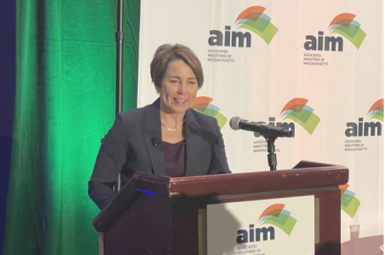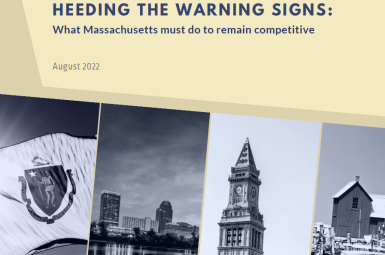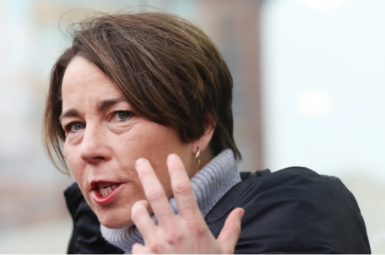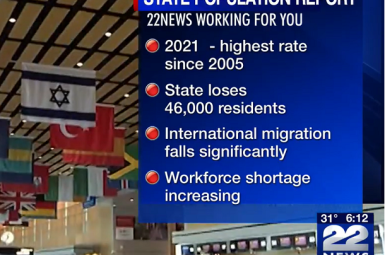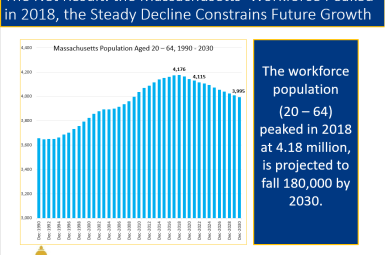Last summer, a report from the Massachusetts Taxpayers Foundation suggested high costs and taxes were helping drive tens of thousands of taxpayers out of the state every year. Between 2010 and 2019, about 800,000 tax filers with a combined $65 billion in adjusted gross income, left Massachusetts, based on Internal Revenue Service and U.S. Census Bureau data, the group said.
Yet, even with this solid foundation, there are warning signs we must heed.
According to a recent report from the Massachusetts Taxpayers Foundation, Massachusetts lost 46,000 residents in 2021, the 4th greatest state population loss in the country.
The Massachusetts Taxpayers Foundation, in a report released last week, said the state’s population already was aging and growing at a slower rate before the COVID-19 pandemic, but that’s been “exacerbated” by employees’ ability to work remotely, which gave them the mobility to take new jobs in a tight labor market.
MTF President Eileen McAnneny said the state’s talent pipeline is contracting, a threat to sectors that have traditionally helped the state economy grow, like higher education and health care.
The pandemic put a strain on our workforce here in Massachusetts. The latest report from the Massachusetts Taxpayers Foundation (MTF) found startling trends when it comes to the population of Massachusetts, and they were all exacerbated by COVID-19.
Demographics pose a problem for the health of the Massachusetts economy. The state’s population is aging. The number of people in the workforce is declining.
While policy makers may not be able to do anything to increase the birth rate, there are steps to take to encourage young adults to stay in Massachusetts, or perhaps move here. That is the message to state legislators in a new report from the business-backed Massachusetts Taxpayers Foundation.
WAMC’s Pioneer Valley Bureau Chief Paul Tuthill spoke with MTF President Eileen McAnneny.
MTF President Eileen McAnneny discusses a new report on Massachusetts demographics.
The Massachusetts Taxpayers Foundation, in a report released Wednesday, said the state’s population was aging and growing at a slower rate before the COVID-19 pandemic, but the trends have been “exacerbated” by more employees being able to work remotely and move to take new jobs in a tight labor market.
MTF President Eileen McAnneny said the state’s talent pipeline is contracting, a threat to sectors that have traditionally helped the state economy motor along, like higher education and health care.
“The decline in the birth rate over the past few decades, the aging of our population, the shrinking of our workforce age population, and then the reduction in international immigrants into Massachusetts, all are somewhat troubling because it means our workforce has been and will continue to contract,” said Eileen McAnneny, president of the Massachusetts Taxpayers Foundation, a business-backed group. “I think the trends were ongoing. I think COVID exacerbated some of it.”
The jobs are there in Massachusetts, but nobody seems to want them, says a new report, which shows there are twice as many job openings as unemployed people in the state.
The report, released Wednesday by the Massachusetts Taxpayers Foundation, lays out a grim economic outlook for the state, which is facing a contracting workforce driven by an aging population, declining birth rate and people choosing to move elsewhere at the fourth-highest rate in the country.
An overwhelming outmigration of Bay Staters, an aging state population and a shrinking number of international college students are among the demographic trends imperiling the economic growth potential and labor market in Massachusetts, a new report sent to lawmakers finds.
